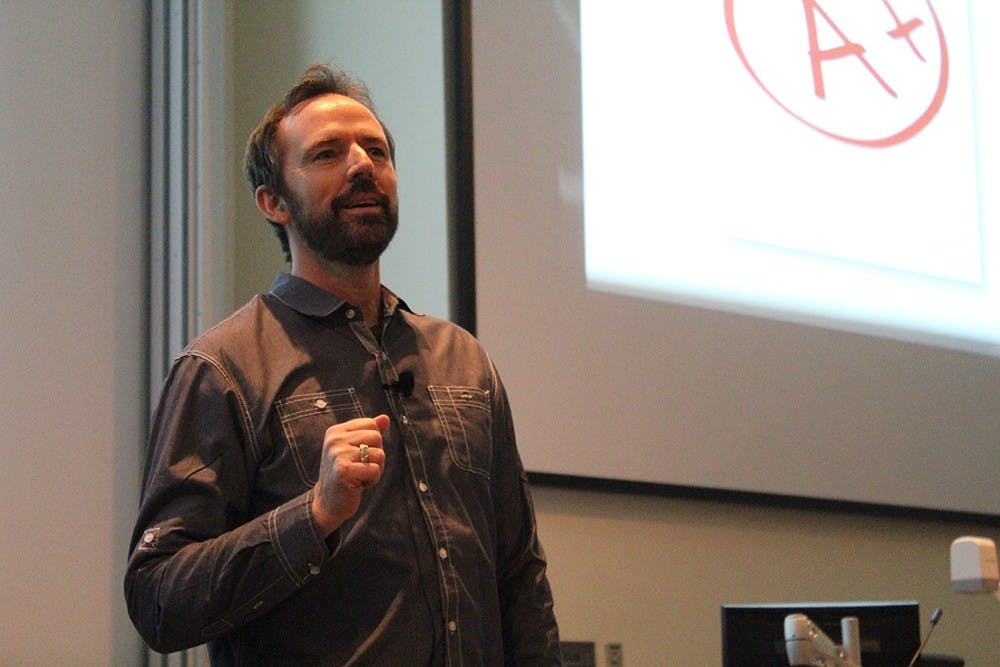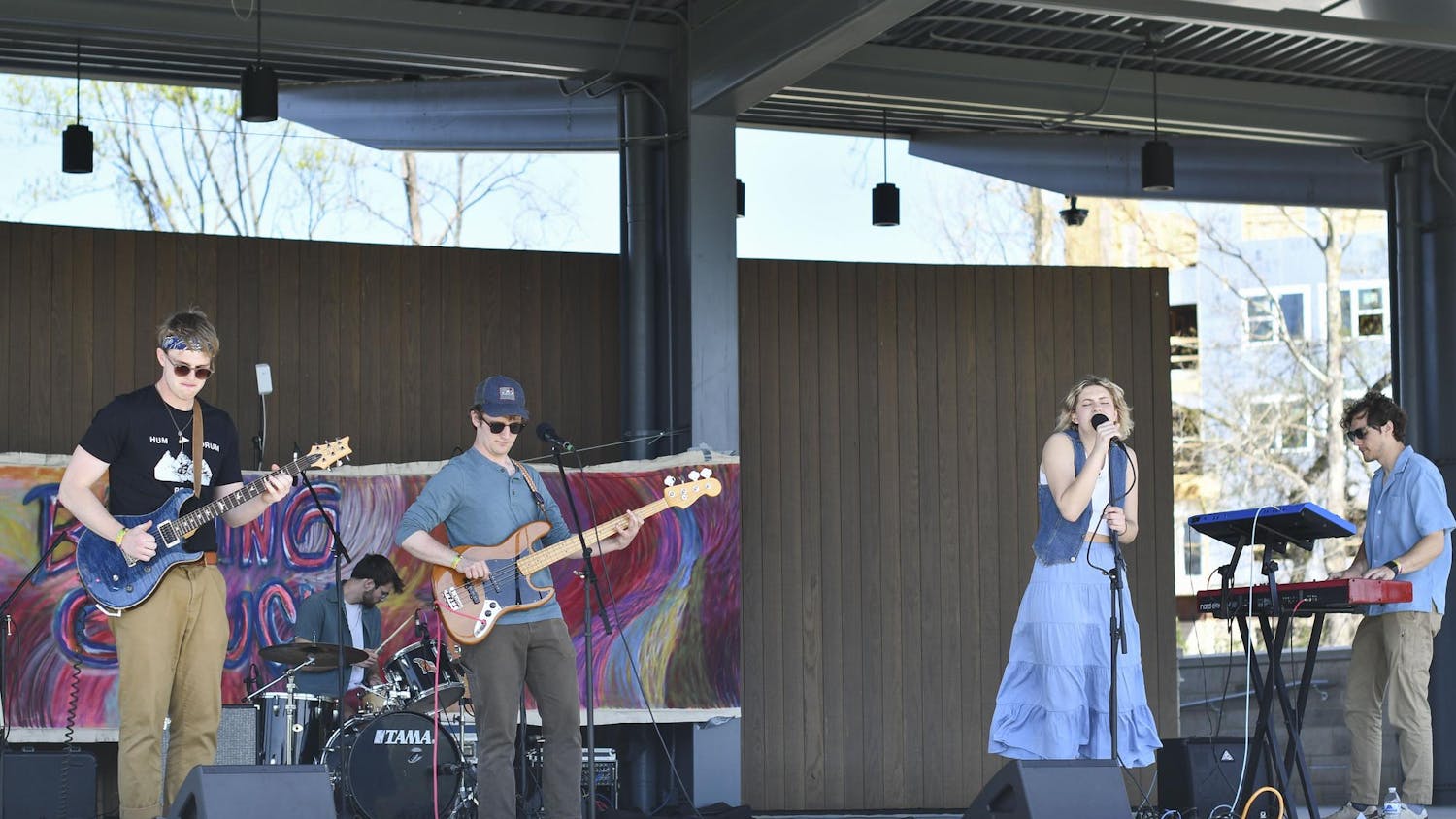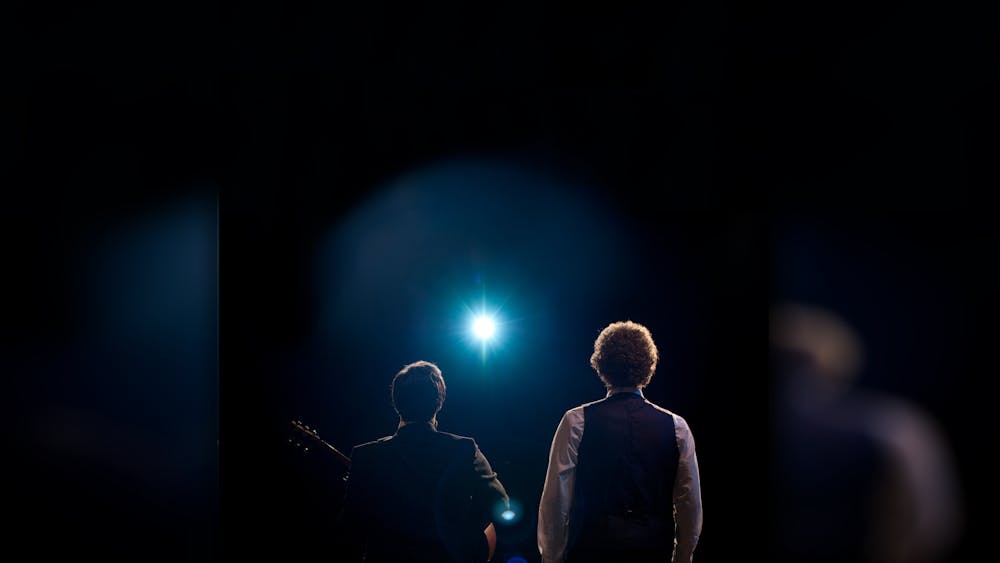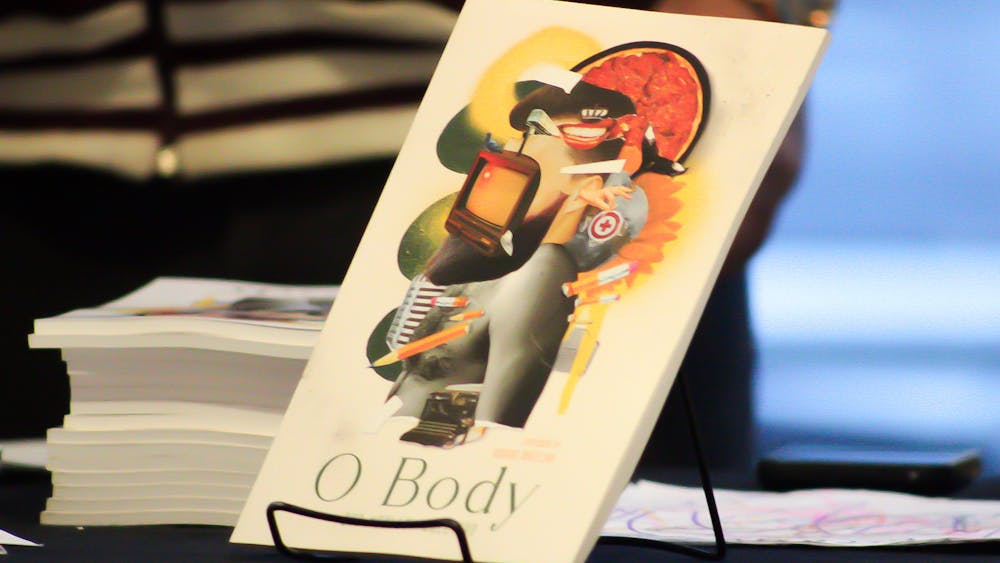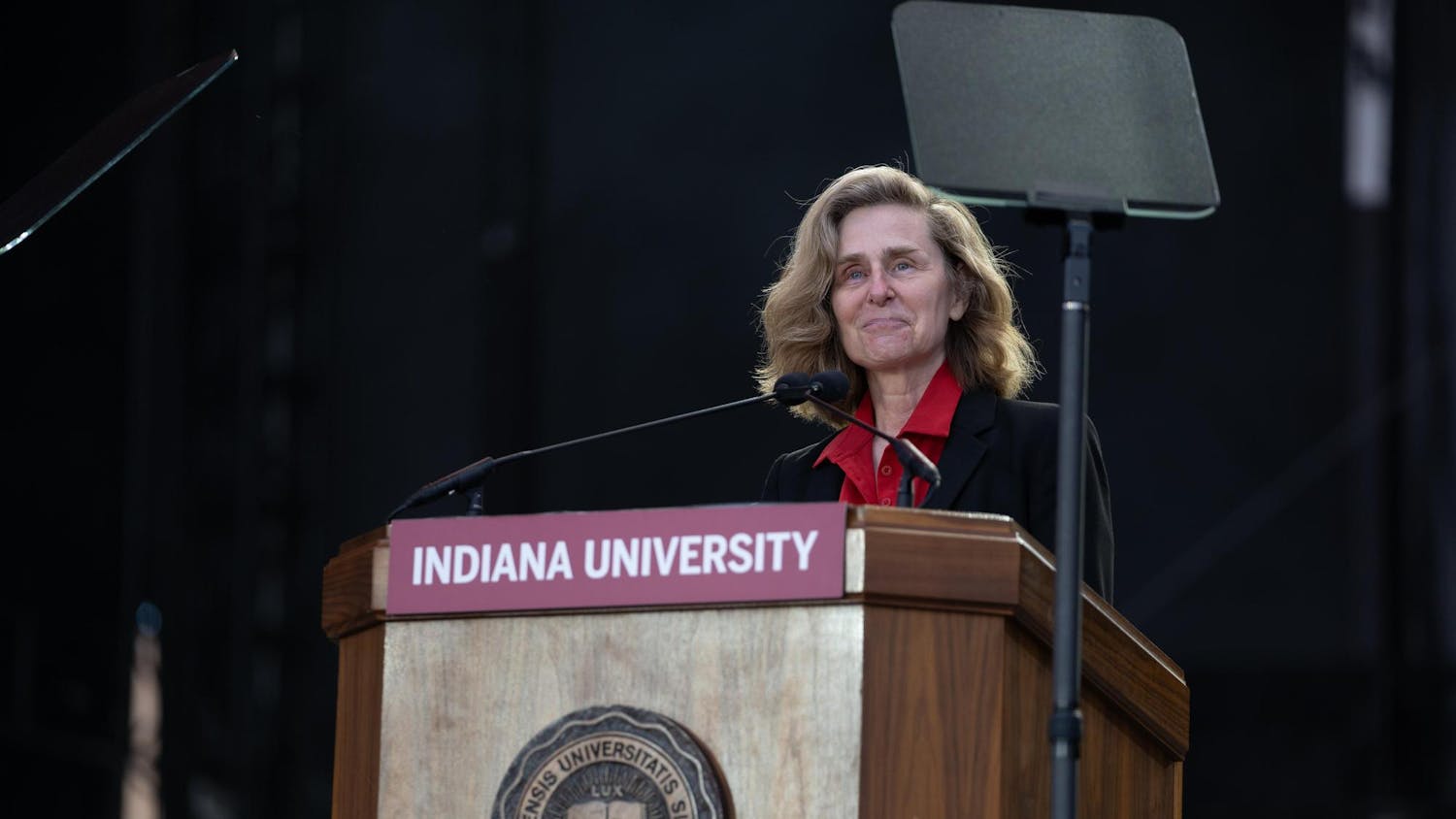With every dynamite score, there’s a mastermind that makes fantasy come to life. Award-winning composer Chance Thomas shared the tricks to writing music for video games.
Thomas’ lecture, “Composing Music for Games: The Art, Tech, and Commerce of Video Game Scoring,” took place 7 p.m. Monday at Sweeney Hall in the Simon Music Library. It was open to all IU students.
A collaboration between the Jacobs School of Music’s Center for Electric and Computer Music, the Media School and Project Jumpstart, the lecture hit on the key components to successful composing in the gaming industry, a position that both USA Today and Geekwire have declared “one of the top-10 fastest growing jobs in America.”
Before the lecture started, ?Thomas jumped from seat to seat in the audience, chatting with students, getting to know them and their interests. His easygoing attitude and excitement set the tone for an inviting, interactive lecture. Video game designers, composers and serious gamers were in attendance.
“Music scoring is a language,” Thomas said.
The music score is the emotional sub-narrative of any visual medium, he said.
Giving students a “pop quiz” before delving into his lecture, Thomas asked students what kinds of instruments they would use to write the music for a video game scene he flashed onto the projector.
Several students raised their hands, calling out names of instruments or the types of sounds they associated with that scene.
“Exotic flute.”
“Big hits on metallic percussion.”
“Djembes and toms.”
After compiling a list of sounds and instruments, he played the actual clip of music he composed. The result was almost exactly what the students had described. Unlike concert music, Thomas said film and game scoring is like creating a ?universal language.
“Pay attention to what the music does to your emotions when it comes in,” Thomas said, showing a clip and prompting students to describe how it changed their feelings afterward.
No matter what type of music is being written, there are six universal functions vital to music scoring, Thomas said. Setting the mood, heightening emotion, propelling the action, providing contextual clues, enhancing the aesthetic and contributing to structural unity — the key formula for any student sharpening their composing chops.
“If someone turns off the music in the game you have lost the battle,” Thomas said. “That’s a huge challenge ?for us.”
The unpredictable nature of video games is what differentiates them between that of film and television scores, he said.
“We don’t know how the drama is going to unfold at any particular moment in time,” Thomas said, comparing the scoring and plot lines of video games to the predictable story arcs in film and television.
Aside from composers in general, Thomas said video game composers face three specific obstacles: scale, function and ?flexibility.
“The music has not just a dramatic role, but a functional role,” he said.
This functional role indicates what the player needs and helps them to navigate through their mission.
Thomas displayed functionality through the video game version of the classic board game Monopoly.
Each of the special spaces or opportunities a player encounters — rolling doubles, collecting a chance card, passing go and drawing the community chest — come with a short clip of music or sound effect, serving functional purposes.
“I want you to think of music scores as tinker toys,” Thomas said.
He explained that, like tinker toys, a score has several various connectable components, each with its own role, and connects one to the next in order to create a score.
Thomas also stressed the importance of the relationship between programmer and ?composer.
He said his main goal in reaching out to students and giving these lectures is that they will pave the way for the future.
Paul Mortilla, a freshman music composition major in the music school, said Thomas’ “knowledge and handle of what is needed to have a successful film score” was what stuck with him most from the lecture.
“It’s impressive that he has such a definite method,” Mortilla said.

